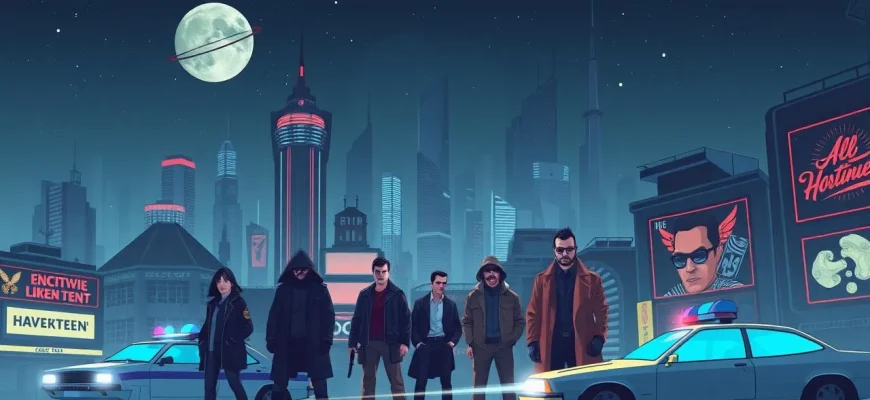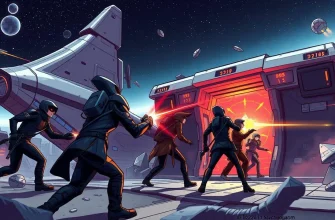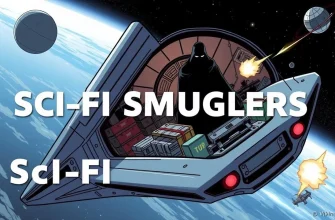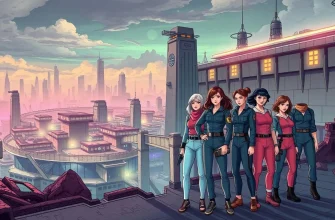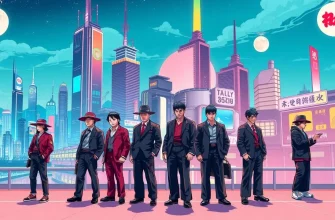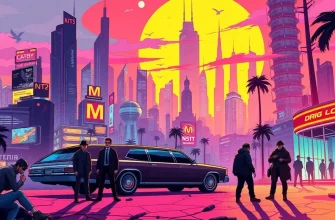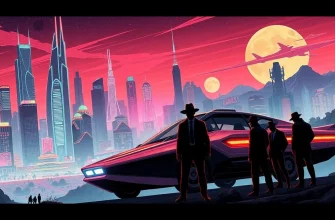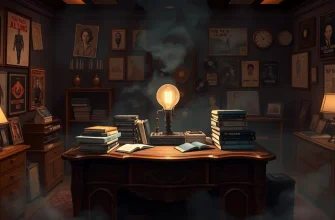Fancy a bit of futuristic crime drama? This collection of sci-fi films delves into the murky waters of organised crime, set against the backdrop of advanced technology and dystopian futures. Each film offers a unique twist on the classic crime narrative, blending high-tech gadgets, futuristic societies, and the timeless allure of the underworld. Whether you're into cyberpunk aesthetics or just love a good heist, these films are sure to captivate your imagination.
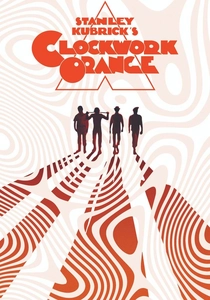
A Clockwork Orange (1971)
Description: Stanley Kubrick's adaptation of Anthony Burgess's novel features Alex, a charismatic leader of a gang of "droogs" who engage in ultra-violent crime. The film explores themes of free will, morality, and the nature of crime in a futuristic, dystopian Britain.
Fact: The film was banned in several countries due to its graphic violence, and Kubrick himself withdrew it from UK cinemas after threats to his family.
 Watch Now
Watch Now
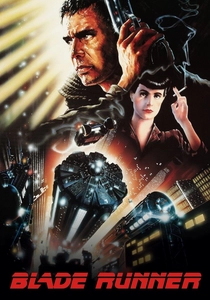
Blade Runner (1982)
Description: This neo-noir sci-fi classic explores themes of identity, humanity, and crime in a dystopian future where synthetic humans, known as replicants, are hunted by special police operatives known as Blade Runners. The film's intricate plot involves a Blade Runner, Rick Deckard, who must track down rogue replicants, leading him into the heart of a criminal underworld.
Fact: The film was initially a box office disappointment but has since become a cult classic. Ridley Scott's director's cut removed the voice-over narration and added a unicorn dream sequence, sparking debate over Deckard's humanity.
 Watch Now
Watch Now
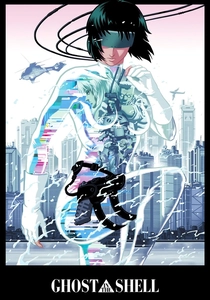
Ghost in the Shell (1995)
Description: Set in a future where cybernetic enhancements are commonplace, this anime film follows Major Motoko Kusanagi, a cyborg federal agent, as she investigates a mysterious hacker known as the Puppet Master. The film delves into themes of consciousness, identity, and the ethics of cybercrime.
Fact: The film's visual style heavily influenced the cyberpunk genre, and its philosophical depth has made it a staple in discussions about AI and cybernetics.
 Watch Now
Watch Now
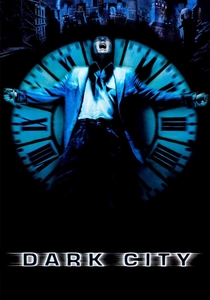
Dark City (1998)
Description: This film noir sci-fi thriller revolves around John Murdoch, who wakes up with no memory and discovers he's wanted for a series of murders. As he uncovers the truth, he finds himself in a city controlled by mysterious beings known as the Strangers, who manipulate reality and time.
Fact: The film's visual effects were groundbreaking for its time, particularly the use of practical effects to create the shifting cityscape.
 Watch Now
Watch Now
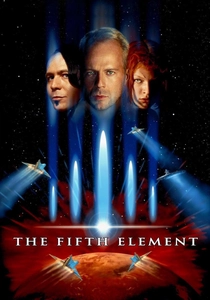
The Fifth Element (1997)
Description: While primarily an action-adventure, this film includes elements of organized crime through the character of Zorg, who deals in illegal arms and has connections with a larger criminal network. The plot involves saving the world from an ancient evil, with crime playing a pivotal role.
Fact: The film's futuristic fashion and design have influenced many subsequent sci-fi films and even fashion trends.
 Watch Now
Watch Now

The Matrix (1999)
Description: While not strictly about organised crime, the film's depiction of a hidden reality controlled by machines includes elements of rebellion and resistance against a controlling system, akin to criminal organizations. Neo's journey to uncover the truth about the Matrix involves navigating a complex network of resistance fighters.
Fact: The Wachowskis created a unique visual style known as "bullet time," which has since become iconic in action cinema.
 Watch Now
Watch Now
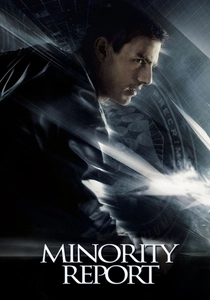
Minority Report (2002)
Description: In this Steven Spielberg thriller, Tom Cruise plays a chief of the PreCrime police unit, which uses psychic technology to arrest murderers before they commit their crimes. However, when he's accused of a future murder, he must navigate the criminal underworld to clear his name.
Fact: The film's depiction of future technology, like personalized advertising and gesture-based interfaces, has become eerily prescient.
 Watch Now
Watch Now

Equilibrium (2002)
Description: In a future where emotions are outlawed, Christian Bale plays a law enforcement officer who begins to question the regime after missing his dose of emotion-suppressing drugs. His journey leads him to join an underground resistance, effectively making him part of an organized crime network.
Fact: The film was shot in Berlin, using the city's architecture to enhance the dystopian feel.
 Watch Now
Watch Now

Brazil (1985)
Description: Terry Gilliam's dark comedy-dystopia features Sam Lowry, a low-level bureaucrat, who becomes embroiled in a bureaucratic nightmare after a clerical error. His quest to fix the mistake leads him into a world of corruption and crime.
Fact: The film's title is a reference to the song "Aquarela do Brasil," which plays during the opening credits, symbolizing a dreamlike escape from reality.
 30 Days Free
30 Days Free
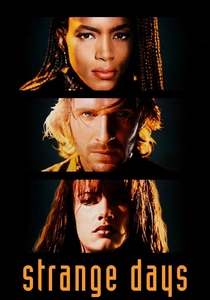
Strange Days (1995)
Description: Set in the last days of 1999, this film follows Lenny Nero, a former cop turned dealer in illegal VR recordings. His investigation into a murder leads him into the seedy underbelly of Los Angeles, where crime and technology intersect in dangerous ways.
Fact: The film was directed by Kathryn Bigelow, who would later win an Oscar for "The Hurt Locker."
 30 Days Free
30 Days Free

